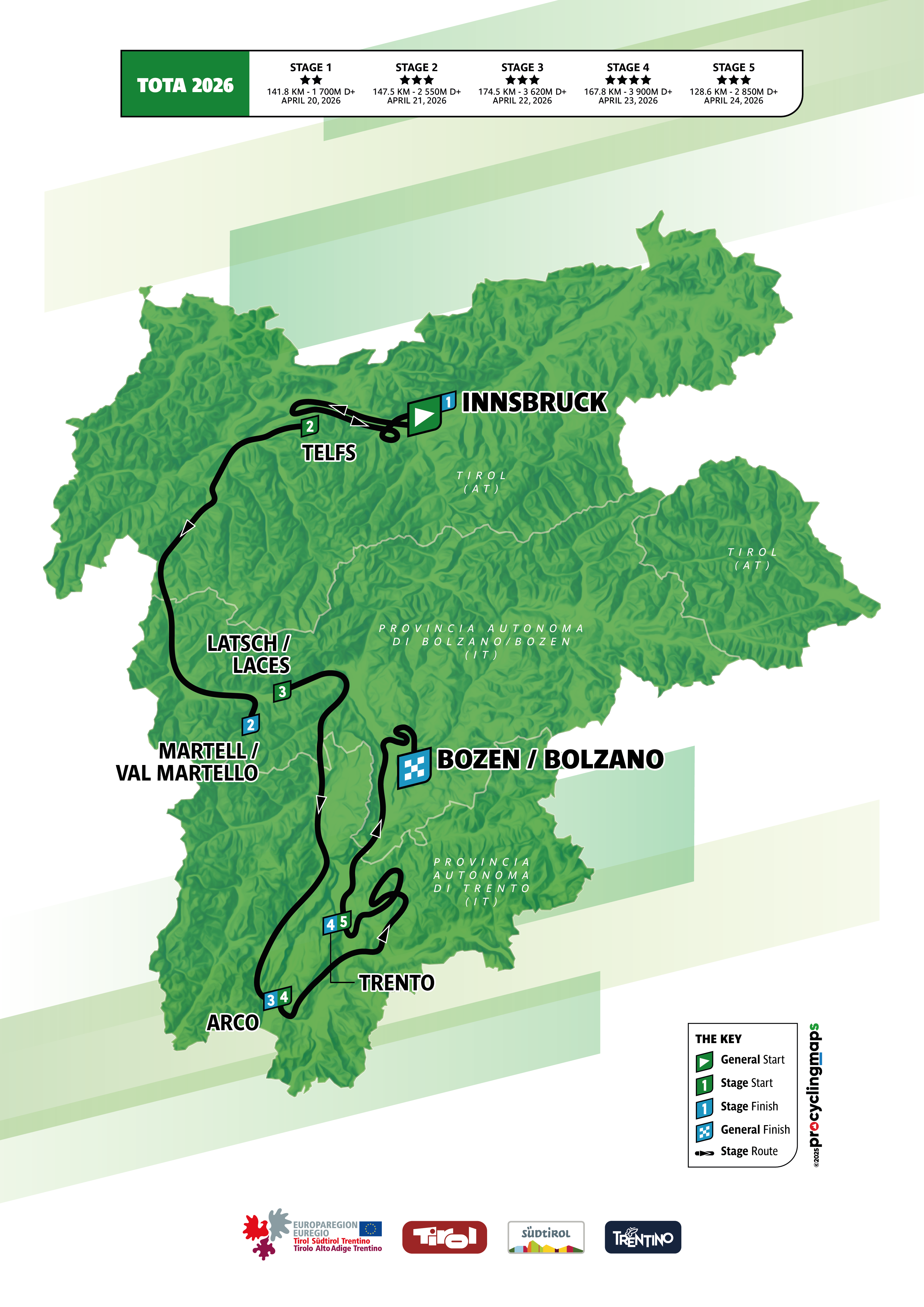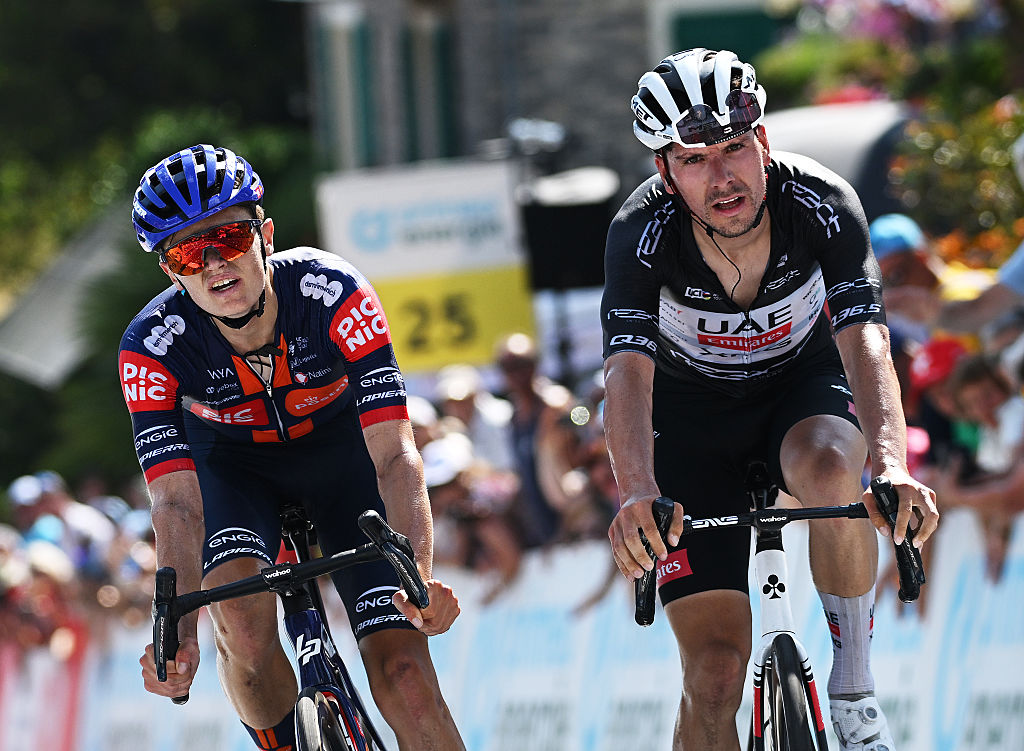Tour of the Alps 2026 route
Riders face five stages and 14,620m of climbing over 760 kilometres of racing

The latest race content, interviews, features, reviews and expert buying guides, direct to your inbox!
You are now subscribed
Your newsletter sign-up was successful
The 2026 Tour of the Alps again offers five days of mountainous racing in Austria and Italy, offering a perfect route to the Giro d'Italia.
2026 marks the 10th anniversary of the cooperation agreement between Tirol, Südtirol/Alto Adige and Trentino and the race spanning the special Euroregion, with the Tour of the Alps building on the legacy of the Giro del Trentino race.
The 2026 Tour of the Alps route was presented in Milan on November 13th, with organisers claiming the race generated a record media value of more than €17 million.
Australian Michael Storer (Tudor) won the Tour of the Alps in 2025 after a battle with Thymen Arensman (Ineos Grenadiers) and Derek Gee (Israel-Premier Tech). 18-year-old French super talent Paul Seixas (Decathlon-AG2R La Mondiale) also showed signs of his talent, even as he let teammate Nicolas Prodhomme win the final stage to Lienz.
The stages are short and intense, with minimal transfers, and a dozen WorldTour teams are expected on the start line as they prepare for the Giro d'Italia.
For 2026, the race organisers have introduced a new intermediate sprint near the finish called the “Bonus Sprint”, which offers 6, 4 and 2 seconds. They are often placed on or after climbs, so they will impact the GC battle.

The 2026 race includes five days of racing between Monday, April 20, and Friday, April 24. The five stages cover 760 kilometres and 14,620 metres of total elevation gain. Once again, the Tour of the Alps will be about climbing ability but also about riders' descending skills, with only one mountain finish and three descents to the line.
The latest race content, interviews, features, reviews and expert buying guides, direct to your inbox!
The opening stage is around Innsbruck, just like in 2017, when Michele Scarponi won just a few days before his tragic death. Geraint Thomas won overall that year. The 141.8km stage includes four short climbs but is perhaps a chance for a fast finisher to win.
Stage 2 is from Telfs in Tirol to Val Martello in Südtirol/Alto Adige for a mountain finish in the high valley. The 147.5km stage includes two high climbs as the stage heads south in Italy and then a six-kilometre climb at 8% to the finish line. It is the only mountain finish of the race and so will be vital in the GC battle.
Stage 3 starts in Latsch/Laces and finishes in Arco, the Garda Trentino town that has long been home to the Tour of the Alps organizing committee. The 174.5km stage includes the Passo Castrin early on, before a series of smaller climbs in the mountains, and a final fast descent to the finish.
Stage 4 is over 167.8km from Arco to Trento, via the high mountains of the Passo Redebus. This is the Queen stage, with 3600 metres of climbing. The late Povo climb was included in the 2021 European Championships and could therefore be included in the 2031 Super World Championships.
Stage 5 starts in Trento and climbs north to finish in Bolzano, with two major late climbs no doubt deciding the final GC standings. It is only 128.6km long but includes the Montoppio and Cologna di Sopra climbs in a tough final circuit, north of the city.

Stephen is one of the most experienced members of the Cyclingnews team, having reported on professional cycling since 1994. Before becoming Editor-at-large, he was Head of News at Cyclingnews. He has previously worked for Shift Active Media, Reuters and Cycling Weekly. He is a member of the Board of the Association Internationale des Journalistes du Cyclisme (AIJC).
You must confirm your public display name before commenting
Please logout and then login again, you will then be prompted to enter your display name.
